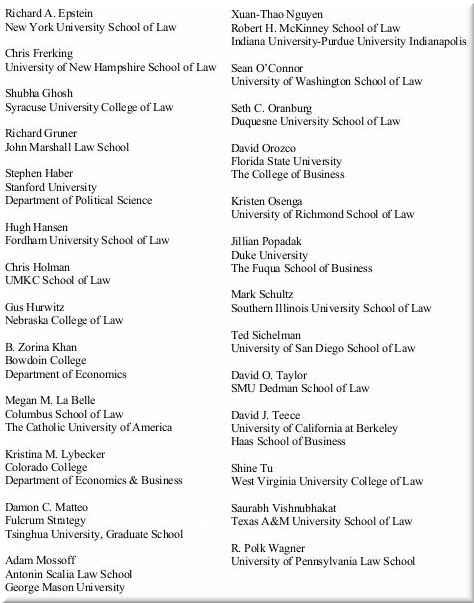

TITLES can be misleading. They don't say much about a person's affiliation or integrity and when universities are privately-owned and funded by large corporations it's not enough to interpret the title "professor" as an instant legitimiser or indication of impartiality. There are still academics who promote GMOs, for example, but many are funded (one way or another, directly or indirectly) by the likes of Monsanto. It's a lucrative business with billions of dollars at stake; throwing some corporate money at universities is ordinary practice, more so in the US than in Europe (where the EPO even pays academic publishers to print what EPO marketers write).
"The District of Massachusetts ruled that Limelight Networks did not infringe, but one decade later (and millions of dollars in legal fees) there is an outcome that has been favourable mostly to patent lawyers. How typical!"Blockstream, says a new article by Mike Masnick, "Promises Not To Abuse Patents" even though it hasn't got patents. "Over the years," he writes, "we've discussed various examples of tech companies taking a stand against patent abuse. That is, in lieu of actual patent reform to fix a broken system, some companies are doing things on their own (we even had a podcast discussing a bunch of examples). One of my personal favorites was Twitter's Innovator's Patent Agreement which effectively lets the named inventors on the patent issue their own licenses to undermine trolls should the patents ever fall into trollish hands. Think of it as something of a poison pill to make the patents worth a lot less to pure trolls. One of the tricks though has been convincing smaller startups to take some of these steps -- even the license on transfer network, which is sort of a no brainer for startups. So it's good to see, as pointed out by EFF, that Blockstream, a fascinating company in the blockchain space that employs a ton of super smart people, take a big commitment to be a good player in the patent realm."
Perhaps Blockstream has some impending patents and is preparing for backlash when the public finds out about it. Still, what happens if Blockstream gets bought by some hostile company along with its patents? Or worse: what is the patents are sold to trolls? Will the pledge still be applicable? It's quite chaotic out there as one single company can be compelled to pay $54 million in 'damages' over one single patent, as per the Supreme Court's ruling in this case (Akamai v Limelight Networks). To quote MIP: "Limelight Networks has entered into a settlement agreement with Akamai Technologies to end the longstanding battle over a global hosting patent. The settlement converts the $51 million judgment into a $54 million license that will be paid in 12 equal quarterly installments starting August 1."
Where does all of that money go? Surely not R&D. Limelight Networks is based in Arizona and the plaintiff/s included MIT, which produces no products and enjoys funding from taxpayers. The District of Massachusetts ruled that Limelight Networks did not infringe, but one decade later (and millions of dollars in legal fees) there is an outcome that has been favourable mostly to patent lawyers. How typical! ⬆